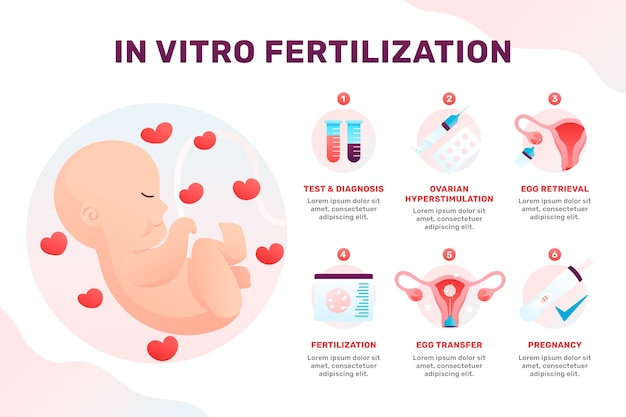
Struggling to have a baby can be really tough. If you’re having conceiving difficulties with your partner, you might be part of the 12% of couples dealing with infertility. Though top-ranked fertility clinics can provide treatments to help you conceive, figuring out what’s best for you could feel stressful. Here’s a breakdown to make it clearer:
Artificial insemination, or AI, happens when your partner’s sperm (or a donor’s) is introduced into your reproductive system during your ovulation period to encourage pregnancy. If you’re ovulating normally, no extra medicines are needed. If you’re having ovulation issues, fertility drugs can boost your odds of conceiving.
A similar but more active process is Intrauterine Insemination (IUI). Here, the doctors use a thin tube to put sperm directly into your uterus. The goal is to boost the chances of sperm reaching the egg.
In-vitro fertilization, or IVF, allows your eggs to be fertilized by sperm in a lab outside of your body. After that, the fertilized eggs are put back into your uterus hoping they’ll develop into a baby.
Natural cycle IVF is like standard IVF but without hormonal injections. In this case, the doctors monitor your natural menstrual cycle to pick the best time to extract an egg for fertilization.
If natural conception is difficult for you, you can consider Donor Eggs. Here, a donated egg is fertilized with sperm and implanted into your uterus. The egg donor could be someone you know or connected with via an agency. Although you won’t be biologically related to your child, you’ll be recognized as the birth mother.
Surrogacy is when another woman carries a baby for you or for a same-sex couple. Here, the parents undergo IVF and the embryo is implanted in the surrogate’s uterus. Therefore, the child will be genetically related to the parents, not the surrogate.
Egg freezing involves taking out a bunch of your eggs, instantly freezing them for future use. When you’re ready to conceive, an egg is thawed, fertilized, and put into your uterus.
Fertility Drugs like Clomid and Femara can be used to stimulate the ovaries and treat irregular ovulation. If these don’t work, hormone injections, called gonadotropins, that encourage ovulation are an option.
Fertility clinics often offer a range of advanced procedures too. One such is ICSI, or Intracytoplasmic Sperm Injection which is useful for men with a low sperm count. After retrieving eggs, single sperm is injected into each egg. The embryos then develop in a lab for a few days before being returned to the woman’s uterus.
This might seem like a lot, but don’t worry. Take the time to learn about the various options and find the treatment that feels right for you.


